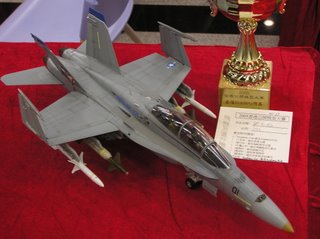Sunday, April 30, 2006
Friday, April 28, 2006
香港電台 e-Learning 網上學習計劃
終身學習是香港電台一直提倡的信念,以往我們透過不同的電台、電視頻道及互聯網,將豐富多姿的節目內容傳達給大眾。隨著互聯網及寬頻的普及,互聯網成為另一個有效的廣播途徑,大眾可以在網上主動參與討論,並透過互動方式,提高學習的興趣。
因此,「香港電台網上廣播站」推出一連串推廣「e-Learning 網上學習」的計劃,全方位帶出互動溝通學習新樂趣。
「e-Learning 網上學習」範圍廣泛,我們相信,推動文學、藝術欣賞和語言學習,可有助提升社會質素。所以「網上學習」率先推出的計劃,主要亦會集中這些部分,當然,我們亦將內容擴展到其他範疇,希望令內容更豐富。
http://www.rthk.org.hk/elearning/
Tuesday, April 25, 2006
辦世界文明課程 欲拓闊學生視野
雖說城市大學的課程多以實用為主,但《明報》刊載的一則教育新聞却令我興奮無比,現節錄該報導如下:
城市大學校長張信剛明年退休,退休在即仍然四出奔波,為圓一個心願,就是親自「嚴格挑選」世界各地約30名重量級學者,集結知識及力量,為城大學生籌辦全港首創的跨國度「世界文明」課程,課程內容涵蓋四大文明古國、中東及歐美文化歷史,目的是擴闊學生世界視野,提升學生文化質素。
「現時有人說香港被人邊緣化,但何時香港學生沒有國際視野,沒有與國際社會交往的能力,屆時香港就真是被邊緣化!」張信剛說,常對學生講要學好英文,同時亦應要認識周遭的事物,具國際視野才有足夠競爭力與內地及其他地區學生競爭。 指港生對文明古國歷史認知不多 張信剛說,香港人及知識分子,對東方文明,包括中國、日本及韓國,認識會較多,而西歐及美國也會有一些認識,因在18及19世紀開始,西方國家強大,歷史及文化觀點,也受歐洲中心主義影響,但一般人對印度、中東等地區的文化及歷史,所知不多。
正籌辦的課程,包含四大古老文明———中國、印度、埃及及希臘的文化及歷史,並串連東歐、西歐及北美的發展,可說是修讀課程便知天下事。「世界文明」課程,並非一般的「通識」課,單是籌辦工作已是大工程 …… 張信剛期望今次能撮合30名來自不同地區、不同信仰、不同文化領域的學者參與。
若課程籌備過程順利,最快於09年試辦,在2012年大學轉4年制時全面推行,至於屆時會否列為學生必修科,則仍有待教務會決定。張信剛強調,大學支持籌備該課程,而將來推行4年制後,大學亦會要求學生修讀9個學分(即3個課程)與文化歷史有關的課程。
Monday, April 24, 2006
Women in the workplace
Even in today’s developed world, surveys show that parents still prefer to have a boy rather than a girl and this is particularly true in Asian countries. Boys have been seen as a greater blessing for the longstanding reason that they are expected to become better economic providers for their parents’ old age. Yet parents have to think again. Among the various economic driving forces, the Internet and the rise of China and India, the role of women in economic growth has long been overlooked.
Girls get better grades at school than boys, and in most developed countries more women than men go to university. Women will thus be better equipped for the new jobs of the 21st century, in which brains count a lot more than brawn. In Britain far more women than men are now training to become doctors. In Hong Kong, an increasing number of elites admitted by the top Medical, Law and Business Schools are women. A surveys show that women consistently achieve higher financial returns than men do. Furthermore, the increase in female employment in the rich world has been the main driving force of growth in the past couple of decades. Those women have contributed more to global GDP growth than have either new technology or the new giants, China and India.
The rise of women as a key economic driving force can be attributed to better grades they get at schools. Why do boys lag behind in schools? It is not an easy question to answer. Some educators may lay blame for the current school system and claim that current schools stressing on disciplines and regulations are not designed for boys. Some may attribiute the failure of boys in schools to the popularity of computer games. I do buy the later idea. When I paid a visit to local toy shops, one common scene was a crowd of boys gathering around the X-box and Playstation demonstration booths. They played the trial computer games and badmouthed each other. No girls queued up for the trial games in all the toy shops I visited. Boys are so fascinated by computer games and they become addicted. Their ‘Electronic addiction’ comes at a price – their health, personal growth and their school grades.
When these boys grow up, they will find themselves a loser in the workplace when compared with their female counterparts. The traditional perception that men as the only bread-winner of the family has been deeply rooted in Asian society. The rise of women challenges the traditional social role of men in the family and this may be disastrous in Asian families in which male chauvinism is still prevalent. In Hong Kong , most family violence that hits the headlines stems from a jobless father who cannot accept the change of his social role in today’s world. Men have to be freed from the social role pre-imposed by our ancestral hunter-gatherer society. Instead of a bread-winner, men can also do a good job in child rearing. Fading male chauvinism, especially in Asian society, is a mammoth social and cultural engineering demanding determined effort from the government and NGOs.
Sunday, April 23, 2006
「世界閱讀及版權日」(World Book & Copyright Day)
聯合國教科文組織(UNESCO)自1995年起,將4月23日定為「世界閱讀及版權日」(World Book & Copyright Day),藉以推動閱讀,並且宣揚關於書本的創作、版權意識、標準設定等的關注和討論。今天是一年一度的世界閱讀日,四月二十三日對文學界本身也有著特別的意義。
遺下無數經典劇作的大文豪莎士比亞(William Shakespeare)在1564年4月23日出生,1616年4月23日離世;
創作《唐吉訶德》的西班牙作家塞萬提斯.薩韋德拉(Miguel de Cervantes Saavedra)也是1616年4月23日逝世的。
其他在4月23日出生或死亡的傑出作家還包括:法國的莫里斯‧圖翁(Maurice Druon)冰島諾貝爾文學獎得主拉克斯內斯(K.Laxness)哥倫比亞小說家曼努埃爾‧巴列霍(Manual Mejia Vallejo)俄裔美藉的納博科夫(Vladimir Nabokov)西班牙的何西‧布拉(Josep Pla) 秘魯的加爾西拉索(Inca Garcilaso de la Vega)
世界閱讀及版權日」(World Book & Copyright Day)
http://www.hkreadingcity.net/article/reading_wbd06/about/
Saturday, April 22, 2006
香 港 同 學 會
香 港 同 學 會
2005-12-19
信 報 財 經 月 刊 總 編 輯 文 灼 非 、 教 育 評 議 會 副 主 席 兼 風 采 中 學 副 校 長 何 漢 權 (III) 大 路 向 前 < 最 後 一 集 >
2005-12-12
信 報 財 經 月 刊 總 編 輯 文 灼 非 、 教 育 評 議 會 副 主 席 兼 風 采 中 學 副 校 長 何 漢 權 (II) 艱 苦 中 讀 書
2005-12-05
信 報 財 經 月 刊 總 編 輯 文 灼 非 、 教 育 評 議 會 副 主 席 兼 風 采 中 學 副 校 長 何 漢 權 (I) 基 礎 教 育
2005-11-28
財 經 事 務 及 庫 務 局 局 長 馬 時 亨 (IV) 尊 師 重 道
2005-11-21
財 經 事 務 及 庫 務 局 局 長 馬 時 亨 (III) 走 堂 維 生
2005-11-14
財 經 事 務 及 庫 務 局 局 長 馬 時 亨 (II) 新 法 書 院 ; 友 情 客 串 : ( 新 法 書 院 學 兄 ) 著 名 編 劇 杜 國 威
2005-11-07
財 經 事 務 及 庫 務 局 局 長 馬 時 亨 (I) 奶 樽 時 代
2005-10-31
立 法 會 議 員 蔡 素 玉 (IV) 香 港 大 學
2005-10-24
立 法 會 議 員 蔡 素 玉 (III) 英 華 女 校 ; 來 電 客 串 嘉 賓 : 現 任 英 華 女 校 李 石 玉 如 校 長
2005-10-17
立 法 會 議 員 蔡 素 玉 (II) 勤 學 英 語
2005-10-10
立 法 會 議 員 蔡 素 玉 (I) 鄉 間 歲 月 ; 來 電 客 串 嘉 賓 : 福 建 小 學 班 主 任 陳 漢 苑 老 師
2005-10-03
2005 年 傑 出 女 企 業 家 獎 得 主 : 震 雄 集 團 行 政 總 裁 蔣 麗 婉 (IV) 香 港 工 業
2005-09-26
2005 年 傑 出 女 企 業 家 獎 得 主 : 震 雄 集 團 行 政 總 裁 蔣 麗 婉 (III) 大 國 民
2005-09-19
2005 年 傑 出 女 企 業 家 獎 得 主 : 震 雄 集 團 行 政 總 裁 蔣 麗 婉 (II) 聖 母 書 院 ; 友 情 客 串 嘉 賓 : 中 學 同 窗 梁 玉 玲 .
2005-09-12
2005 年 傑 出 女 企 業 家 獎 得 主 : 震 雄 集 團 行 政 總 裁 蔣 麗 婉 (I) 無 為 家 教
2005-09-05
香 港 小 交 響 樂 團 音 樂 總 監 葉 詠 詩 (IV) 寬 與 嚴
2005-08-29
香 港 小 交 響 樂 團 音 樂 總 監 葉 詠 詩 (III) 世 界 音 樂
2005-08-22
香 港 小 交 響 樂 團 音 樂 總 監 葉 詠 詩 (II) 民 生 書 院 ; 友 情 客 串 : 民 生 學 妹 林 志 美
2005-08-15
香 港 小 交 響 樂 團 音 樂 總 監 葉 詠 詩 (I) 家 樂 薰 陶
2005-08-08
第 二 屆 香 港 < 傑 出 教 育 家 年 獎 > 得 主 :( 小 思 ) 盧 瑋 鑾 教 授 (IV) 評 教 改
2005-08-01
第 二 屆 香 港 < 傑 出 教 育 家 年 獎 > 得 主 :( 小 思 ) 盧 瑋 鑾 教 授 (III) 金 文 泰 中 學
2005-07-25
第 二 屆 香 港 < 傑 出 教 育 家 年 獎 > 得 主 :( 小 思 ) 盧 瑋 鑾 教 授 (II) 啓 蒙 恩 師
2005-07-18
第 二 屆 香 港 < 傑 出 教 育 家 年 獎 > 得 主 :( 小 思 ) 盧 瑋 鑾 教 授 (I) 敦 梅 小 學 ; 友 情 客 串 嘉 賓 : 敦 梅 小 學 學 兄 鍾 偉 明
2005-07-11
民 政 事 務 局 局 長 何 志 平 醫 生 (IV) 醫 樂 之 旅
2005-07-04
民 政 事 務 局 局 長 何 志 平 醫 生 (III) 愛 上 小 提 琴
2005-06-27
民 政 事 務 局 局 長 何 志 平 醫 生 (II) 拔 萃 男 書 院 ; 友 情 客 串 : ( 學 兄 ) 拔 萃 男 書 院 張 灼 祥 校 長
2005-06-20
民 政 事 務 局 局 長 何 志 平 醫 生 (I) 榕 樹 頭 情 誼
2005-06-13
中 國 工 商 银 行 ( 亞 洲 ) 董 事 黃 遠 輝 (V)
2005-06-06
中 國 工 商 银 行 ( 亞 洲 ) 董 事 黃 遠 輝 (IV)
2005-05-30
中 國 工 商 银 行 ( 亞 洲 ) 董 事 黃 遠 輝 (III) 筲 箕 灣 官 立 中 學
2005-05-23
中 國 工 商 银 行 ( 亞 洲 ) 董 事 黃 遠 輝 (II) 堡 壘 街 小 學
2005-05-16
中 國 工 商 银 行 ( 亞 洲 ) 董 事 黃 遠 輝 (I) 木 屋 童 年
2005-05-09
立 法 會 議 員 湯 家 驊 資 深 大 律 師 (IV) 揚 威 海 外 ; 友 情 客 串 : 社 會 同 樂 陳 百 祥 ( 阿 叻 ) 先 生
2005-05-02
立 法 會 議 員 湯 家 驊 資 深 大 律 師 (III) 輕 狂 歲 月
2005-04-25
立 法 會 議 員 湯 家 驊 資 深 大 律 師 (II) 皇 仁 書 院
2005-04-18
立 法 會 議 員 湯 家 驊 資 深 大 律 師 (I) 貧 童 生 活
2005-04-11
國 際 知 名 數 學 家 丘 成 桐 教 授 (V) 香 港 教 育
2005-04-04
國 際 知 名 數 學 家 丘 成 桐 教 授 (IV) 中 文 大 學 ;
2005-03-28
國 際 知 名 數 學 家 丘 成 桐 教 授 (III) 培 正 中 學
2005-03-21
國 際 知 名 數 學 家 丘 成 桐 教 授 (II) 家 庭 教 育
2005-03-14
國 際 知 名 數 學 家 丘 成 桐 教 授 (I) 童 年 歲 月
2005-03-07
行 政 會 議 成 員 梁 振 英 (III) < 負 笈 海 外 >
Friday, April 21, 2006
卡繆《瘟疫》A. Camus, Plague
主講:劉國英教授
日期:2003年6月14日(星期六)
時間:下午2時半至4時半
地點:香港中文大學 崇基學院 李慧珍樓G07室
(信和樓3/F設行人天橋連接李慧珍樓)
《瘟疫》(La peste),法國諾貝爾文學獎得獎者卡繆(Albert Camus)的小說,初版於1947年。若果作者不是一開始就說明這場瘟疫發生在1940年代地中海南岸的小城奧朗,你會以為他描述的是廿一世紀初的香港:
在我們這小城裏,可能是天氣的關係,一切總是來得熱哄哄的,同時也是沒頭沒腦的。……我們的同胞們勤奮工作,但總是為了賺更多錢。他們特別喜歡買賣,他們首先關心的,就是做生意。自然,他們也喜愛一些簡單的玩意,他們喜歡女人、電影和海浴。……年青人的慾望熾熱和短暫,而年紀較大者的毛病不外乎參加滾球俱樂部、親友間的飲宴和豪賭的牌局。……
表面上這是個毫無疑慮的城市,因為她是個現代化的城市。因此沒有必要詳加說明在這裏人們怎樣愛。男和女,或則在所謂愛的行為中迅速地吞掉對方,或則投入在長期的二人慣性生活裏。在這兩極端之間,中庸之道經常不存在。……在這個城市,一如在其他地方,由於缺乏時間,也由於欠缺反省,人們被迫相愛,卻不知道在愛和被愛。……
需要強調的,是這個城市和這種生活的平凡一面。……從這角度下看,這種生活無疑並不吸引。但至少,我們這裏並不混亂。而我們的居民坦誠、友善和活躍,就經常令遊客產生一份合理的尊重。這個沒有美景、沒有植物、以及沒有靈魂的城市,最終會令人覺得舒適,並且可以安寢。
自從瘟疫在四月一個晴朗的日子造就了第一個死者之後,這個長久以來的福地上的居民,陷入了前所未見的驚惶失措之中:
我們的同胞從沒有想過,我們的小城竟會成為一個萬眾矚目的地方,……為的是陸續有人因為染上離奇的病而死去。……從這時開始,恐懼、以及與恐懼一起到來的反省開始了。……從此再沒有個人的命運,只有一段集體的歷史──瘟疫──以及所有人的共同感受。最大的感受就是分隔和放逐,以及它們帶來的恐懼與憤慨。
在2003年4月的香港,我們不也是曾經一起恐懼、一起憤慨與一起哭泣嗎?但我們有沒有開始反省?讓我們和卡繆一起開始反省吧!
錄影片段1
錄影片段2
http://www.cuhk.edu.hk/bookclub/video/030614.ram
http://www.cuhk.edu.hk/bookclub/video/030614_2.ram
Thursday, April 20, 2006
開 卷 樂
開 卷 樂
2006-04-01
談 張 愛 玲 《 沉 香 》
2006-03-25
談 黃 錢 其 濂 《 虹 城 》
2006-03-18
訪 問 葉 輝 介 紹 《 新 詩 地 圖 私 繪 本 》
2006-03-11
談 香 港 國 際 文 學 節
2006-03-04
談 攝 影 集 《 憧 憬 世 界 》
2006-02-25
介 紹 米 蘭 . 昆 德 拉 【 簾 幕 】
2006-02-18
談 李 漁 《 閑 情 偶 寄 》 / 嘉 賓 ︰ 謝 安
2006-02-11
介 紹 陳 雲 《 五 星 級 香 港 》
2006-02-04
訪 問 黃 燦 然 介 紹 《 在 兩 大 傳 統 的 陰 影 下 》
2006-01-28
介 紹 李 渝 【 賢 明 時 代 】
2006-01-21
介 紹 史 景 遷 【 皇 帝 與 秀 才 】
2006-01-14
訪 問 林 璧 芬 談 大 江 健 三 郎 《 給 新 新 人 類 》 等
2006-01-07
訪 問 謝 永 齡 、 蕭 志 雄 介 紹 《 追 風 箏 的 孩 子 》 、 《 西 元 3000 年 影 響 世 界 的 100 人 》 及 『 灣 仔 書 節 2006 』
2005-12-24
文 學 雙 年 獎 得 主 談 創 作
2005-12-17
暫 停 一 次
2005-12-10
介 紹 李 銳 【 紅 房 子 】
2005-12-03
介 紹 焦 國 標 《 窩 囊 中 國 》
2005-11-26
談 香 港 出 版 業
2005-11-19
訪 問 伍 自 禎 、 曾 小 敏 介 紹 『 書 節 2005 』
2005-11-12
談 《 新 思 潮 文 檔 》 系 列 嘉 賓 ︰ 彭 志 銘
2005-11-05
訪 問 董 啟 章 介 紹 《 東 京 ․ 豐 饒 之 海 ․ 奧 多 摩 》
2005-10-29
巴 金 特 輯
2005-10-15
介 紹 【 世 紀 三 國 — 曹 操 之 霸 者 勝 出 】
2005-10-08
介 紹 葛 拉 斯 【 蟹 行 】
2005-10-01
談 江 獻 珠 的 飲 食 文 集 -- 嘉 賓 ︰ 關 永 圻
2005-09-24
訪 問 黎 文 卓 介 紹 《 心 靈 一 字 經 》
2005-09-17
談 閱 讀 身 體 與 牛 棚 書 展 -- 嘉 賓 ︰ 俞 若 玫
2005-09-10
介 紹 莫 言 短 片 小 說 集 【 蒼 蠅 . 門 牙 】
2005-09-03
訪 問 黃 擎 天 介 紹 《 帶 南 極 企 鵝 回 家 》
2005-08-27
訪 問 湯 禎 兆 介 紹 【 AV 現 場 】
2005-08-20
介 紹 【 虛 擬 後 樂 園 - 透 視 電 腦 遊 戲 文 化 】
2005-08-13
介 紹 閻 連 科 【 為 人 民 服 務 】
2005-08-06
介 紹 王 一 心 【 張 愛 玲 與 胡 蘭 成 】
2005-07-30
訪 問 莫 逸 風 、 曾 永 楷 介 紹 《 小 童 。 大 同 》
2005-07-16
介 紹 危 令 敦 【 天 南 海 外 讀 小 說 】
2005-07-09
介 紹 宮 布 利 希 【 寫 給 年 輕 人 的 簡 明 世 界 史 】
2005-07-02
訪 問 陳 冠 中 介 紹 【 我 這 一 代 香 港 人 】
2005-06-25
訪 問 鄭 鏡 明 介 紹 《 連 島 沙 洲 》
2005-03-26
介 紹 湯 禎 兆 《 雜 踏 香 港 》
2005-03-19
訪 問 鄭 嬋 琦 、 陳 國 慧 介 紹 【 揭 開 灣 仔 】
2005-03-12
介 紹 《 石 點 頭 — 鍾 逸 傑 回 憶 錄 》
2005-03-05
介 紹 村 上 春 樹 《 黑 夜 之 後 》
Tuesday, April 18, 2006
Fighter Pilot Operation Red Flag


Omnimax show in Hong Kong Space Museum is now playing 'Flighter Pilot Operation Red Flag'.
For those who are interested in aircraft flight, please visit the following links for details:
http://www.lcsd.gov.hk/CE/Museum/Space/Programs/Omnimax/FighterPilot/e_FighterPilot.htm
http://www.fighterpilotfilm.com/
http://www.fighterpilotfilm.com/FP_INT_TG(1.5[1].pdf
Monday, April 17, 2006
The MTR Song - ORIGINAL
The MTR Song - ORIGINAL
The MTR Song has travelled much further than the confines of Hong Kong since Radio 3's Steve James, after years of deliberation and study of the MTR map, finally put pen to paper and came up with the catchy ditty. Bloggers around the world have ...
MTR song
主唱: Unknown
填詞: Unknown
Let’s start from the very beginningThough there s plenty of places to startIf you want to get aroundYou can get all of the townJust by stepping on the ground onto the M-T-R (M-T-R) MTRKCR sayJust follow me:
Tsuen Wan, Tai Wo Hau, Kwai Hing, Kwai Fong, Lai King, and Mei Foo, Lai Chi Kok, Cheung Sha Wan, Sham Shui Po, and 太子道 (change trains) Shek Kip Mei, Kowloon Tong, Lok Fu, Weng Tai Sin, Diamond Hill, Choi Hung, and onto Kowloon Bay, Ngau Tau Kok, Kwun Tong and Lam Tin, and then Yau Tong change for Quarry Bay
North Point, Fortress Hill, and Tin Hau, 銅鑼灣, in English Causeway Bay,Wan Chai, next for me - Admiralty, Central and then you have a choice中環 but I like Tsim Sha TsuiJordan we’re off to Yau Ma TeiMong Kok and here we are againwe’ve returned Price Edward Roadso if you want to get around just get yourself down to the M-T-R
Link of the song
http://www.rthk.org.hk/aps_upload/asx/20060403/f_3_1776_110611.asx
Sunday, April 16, 2006
自 在 觀 鳥
自 在 觀 鳥
2005-09-10
2005-08-27
2005-08-20
2005-08-13
2005-08-06
2005-07-30
2005-07-23
香 港 生 態 環 境 對 鳥 類 生 存 的 影 響
2005-07-16
香 港 鳥 類 分 佈 特 色 (2)
2005-07-09
香 港 鳥 類 分 佈 特 色 (1)
2005-07-02
鳥 類 生 存 的 條 件
2005-06-25
全 球 氣 候 與 鳥 類 生 存
2005-06-18
自 在 觀 鳥 之 鳥 與 人 類 關 係
Saturday, April 15, 2006
請善待禽鳥
請善待禽鳥, 千萬不要大規模撲殺家禽野鳥, 我們可以不吃雞, 可以不觀鳥,防疫抗疫, 首要是注重個人衛生和要有公德心。希望一切不美好的都能隨著2005年過去, 聽聽小雞的哭訴, 愛護大自然, 保護生態環境, 祝大家有美好的2006年。
http://www.hkbirdflu.com/sadchick.htm (k鈴製造 www.kring.cn)
Friday, April 14, 2006
Thursday, April 13, 2006
Integration Vs Disintegration
The following article is extracted from an entry of my wife's blog.
An article titled Pressing Issues arouses my curiosity when I was about to remove the old newspapers piled up like a tower next to the sofa. It covers an interview with a Nepali man who has struggled to make ends meet in running the only Nepali newspaper in Hong Kong.
The original plan to make the newspaper a daily was impossible as it was heavily in debt since the first publication day. Six months after the first copy was issued, Kisan Rai has been the only person who runs the paper. This one-man paper aims at publicizing local events and HK's government policy.
The article also depicts the plight facing the minority groups in Hong Kong. The Nepali here need to struggle to earn a living because of the language barrier. Being treated with no respect, they find the so-called Asia's world city ridiculous as it promotes integration which will never turn out successful. Integration is translated into a brand-new meaning, i.e. someone has to sacrifice own values and culture for the cause of integration. The Nepali residents even have problems with getting their children places in local subsidized schools and public housing.
Racial discrimination has been with us since the colonial period in which some people were more equal than the others (as some animals are more equal than the others -- from Animal Farm by George Orwell) Another form of prejudice against new immigrants from China, Filipino maids and Indians has been prevailing in the territory. Yet, why aren't Australians faced with the same predicament given that so many of them from Oz have robbed locals of the teaching jobs in the education field from primary schools to universities? Simply because they are knowledge professionals? How about Rai who is also an intellectual with a less superior skin colour and racial background?
For more information, click on the link
http://www.rthk.org.hk/rthk/tv/hkce/20050329.html
and watch an episode Racial Discrimination In Hong Kong ( 不 再 歧 視 ) produced by RTHK.
Wednesday, April 12, 2006
健 康 大 道
《 健 康 大 道 》 第 十 九 集 新 一 輯 《 健 康 大 道 》 以 雜 誌 形 式 介 紹 不 同 的 醫 療 、 保 健 資 訊 , 而 這 一 集 的 內 容 為 「 都 市 隠 形 殺 手 - 膽 固 醇 」 、 「 耳 鼻 喉 5 講 5 知 」 、 「 鼻 鼾 」 、 「 藥 要 你 知 - 類 固 醇 」 以 及 「 運 身 是 勁 - 教 你 做 Gym 口 訣 」 。
節目重溫
http://www.rthk.org.hk/rthk/tv/healthandwealth/20060410.html
Tuesday, April 11, 2006
提防香港被邊緣化
信報財經新聞 2006-03-22 時事評論 P10 商心國是 張立
提防香港被邊緣化
「提防香港被邊緣化」,許仕仁這句話應受到重視。其實香港已步向衰落,已步向被邊緣化,正步向下滑。許仕仁用「提防」兩字是客氣,但比視而不見的好,反映他非一般的官僚政客,有敏銳的眼光及觸覺,點出了問題。
對趨勢,要觀於發軔之時,才能把握起落,調整策略,順勢而行,這方是弄潮的本色。就如南亞海嘯,能預警才有救,到了真的被邊緣化了,神仙都難救。
或有說,最近中科院公布《城市競爭力黃皮書》,香港名列第一,台北名列第二,怎能說會被邊緣化呢?香港名列第一,這是歷史,是過往的積累,是一波歷史潮流,把香港推到高峰;但這一波的歷史潮流,是香港在下滑。在同一份中國二百城市比較中,有另一排名,在經濟增長指數排列中,香港是二百城市中第一百九十八名,名列倒數第三,包尾第三。長江後浪推前浪,這是新一波的趨勢,恰恰說明香港在下滑。
其實拋開統計,拋開學術,只要與珠江三角洲的近鄰比較一下,就知道誰快誰慢了。最明顯這十年,大陸在快步前進,香港慢得多。
有危機感才能奮發,才能進步,才能免被淘汰。「提防邊緣化」如果成為大家的共識,特別是香港政府的共識,香港才有機會,否則再渾渾噩噩過五年十年,難救了。
Sunday, April 09, 2006
讀小說與寫小說 — 從大江健三郎的《給新新人類》說起
校園讀書會
日期:2006年2月25日(星期六)
時間:下午二時半至四時半
地點:香港中文大學邵逸夫夫人樓LT1主講:董啟章
讀小說與寫小說 — 從大江健三郎的《給新新人類》說起
日本當代小說家大江健三郎是一位知識型作家,多年來通過小說探索日本社會文化問題,反思現代人的生存境況。一九九四年獲得諾貝爾文學獎之後,大江依然創作不輟,對人類社會前途的關懷越加熱切。大江的作品素有艱澀深奧的評價,但他近年卻以簡潔易懂的文筆,寫出了一系列以年輕人為對象的散文,和新一代分享他的人生體驗和學習心得,並結集為《給新新人類》一書。這些文章充分流露出大江對年輕一代的期盼,和對人類前景的樂觀精神。
費用全免,歡迎各界人士報名參加! 報名及詳情:http://www.cuhk.edu.hk/bookclub/
錄影片段
http://www.cuhk.edu.hk/bookclub/video/060225.ram
Wednesday, April 05, 2006
The World Is Flat: A Brief History of the Twenty-first Century / Thomas L. Friedman
The World Is Flat: A Brief History of the Twenty-first Century / Thomas L. Friedman
Speaker: Gordon ChangDate: 7 March 2006 (Tuesday)Time: 7:15 - 9:00 pmVenue: Special Collections, 1/F, Main Library, The University of Hong KongLanguage: English
-----------------------------------------------------------------------------
About the Book
Image from and link to Amazon
In this book, the Pulitzer Prize-winning New York Times columnist Thomas Friedman demystifies the brave new world for readers, allowing them to make sense of the often bewildering global scene unfolding before their eyes. With his inimitable ability to translate complex foreign policy and economic issues, Friedman explains how the flattening of the world happened at the dawn of the twenty-first century; what it means to countries, companies, communities, and individuals; and how governments and societies can, and must, adapt. The World Is Flat is the timely and essential update on globalization, its successes and discontents, powerfully illuminated by one of our most respected journalists.
About the Speaker
Gordon G. Chang lived and worked in China and Hong Kong for almost two decades, most recently in Shanghai, as Counsel to the American law firm Paul Weiss and earlier in Hong Kong as Partner in the international law firm Baker & McKenzie. He has served two terms as a trustee of Cornell University.
His writings on China and North Korea have appeared in The New York Times, The Wall Street Journal, the Far Eastern Economic Review, the International Herald Tribune, The Weekly Standard, and the South China Morning Post.
He is the author of The Coming Collapse of China, his first book (Random House, August 2001). His next book, Nuclear Showdown: North Korea Takes On the World, will be published by Random House in January 2006. Showdown will focus on nuclear proliferation in general and the North Korean crisis in particular.
Link to the video review of the book talk
mms://vod01.lib.hku.hk/all/bt20060307.wmv
Tuesday, April 04, 2006
教 育 系 列 之 社 會 變 了
本 集 內 容
香 港 現 在 已 由 工 業 社 會 發 展 成 知 識 型 社 會 , 服 務 行 業 成 為 主 流 , 對 人 才 的 定 義 , 有 新 的 理 解 , 學 業 成 績 並 不 是 最 重 要 的 指 標 , 良 好 的 共 通 能 力 才 是 現 今 社 會 對 人 才 的 要 求 。
以 往 中 五 畢 業 的 同 學 , 可 以 選 擇 的 工 種 較 闊 , 現 在 工 業 北 移 , 中 五 同 學 可 以 選 擇 的 工 作 , 主 要 是 服 務 性 行 業 , 這 一 個 行 業 需 要 員 工 有 良 好 語 言 能 力 外 , 溝 通 能 力 、 應 變 能 力 、 與 人 合 作 的 能 力 等 等 也 是 重 要 的 素 質 , 不 過 現 今 的 教 育 正 正 缺 乏 這 些 共 通 能 力 的 培 養 , 因 為 學 校 要 預 備 學 生 應 付 公 開 考 試 , 各 種 學 術 科 目 的 課 程 實 在 非 常 緊 密 , 全 人 發 展 的 空 間 實 在 不 多 。
至 於 大 學 畢 業 生 , 經 過 各 項 考 試 的 精 英 , 要 在 現 今 社 會 有 競 爭 力 , 要 有 專 業 知 識 外 , 也 要 是 通 才 ; 社 會 愈 來 愈 多 元 化 , 各 個 工 作 岡 位 要 兼 顧 的 也 非 常 廣 泛 , 所 以 自 學 、 溝 通 及 應 變 、 能 夠 與 人 合 作 等 等 都 是 各 個 工 作 岡 位 重 要 的 能 力 。
二 十 一 世 紀 的 香 港 是 知 識 型 社 會 , 需 要 知 識 型 人 口 , 每 個 人 都 要 對 社 會 有 了 解 , 有 良 好 嘅 溝 通 表 達 能 力 , 可 以 同 人 合 作 , 這 些 共 通 能 力 , 都 需 要 由 基 礎 教 育 開 始 培 養 。
網上直播完畢稍後提供節目重溫
http://www.rthk.org.hk/rthk/tv/societychanged/20060403.html
Sunday, April 02, 2006
Are we pushing our kids too hard?
This title appears in the cover story of Time magazine dated March 27, 2006. Over-scheduling our kids with endless extra tuition sessions, piano lessons, tennis classes, late-night homework and much more seems to be a common practice in most Asian countries. The story cites examples from China, Hong Kong, Singapore, Japan and Korea where parents are eager to provide their kids a head start and signing them up for everything from weekend prep courses for under-sixes to boarding schools for toddlers. They desperately want their kids to do well in life and deeply believe that only relentlessly hard work and a top-notch education can raise the odds of success.
What is the price of excellence? Being a rich dad is definitely the answer. Spending more than HKD$10,000 per month for kids' extra lessons is not uncommon in most Hong Kong's middle class families. Parents are obligated to buy HKD$200,000 school bonds if their kids are so lucky to be admitted by some prestigious international schools. Apart from financial cost, are we preparing kids for success at the expense of their mental health? Research done by clinical psychologists points out that overstressed kids are more prone to schizophrenia (a mental disease).Although not all overscheduled kids are going to develop full blown mental diseases, quite a large number of them will lose interest in study. “Many parents want to show off their children. The child understands that what’s important is not education but that he is a status symbol for his parents” says Dr. Aruna Broota, a clinical psychologist at the University of Delhi. This explains why many excellent performers in PISA (An international study on students’ performance in mathematics, science and language) lose their enthusiasm in study once they get admitted to the University. This is certainly a disadvantage in a rapid changing world in which only the life-long learners can have the edge on others.
Do parents know the drawbacks of over-scheduling their kids? Yes, but they are so helpless and succumb to the social pressure. If today's parents do not fill their children's every waking hour with study, or at least organized activity, they risk social disapproval. As one Hong Kong parent says, “I was regarded as an irresponsible parent, because they were not doing enough.” In Japan, a country once notorious for burdening children, is now adhering to a policy of yutori kyoiku (relaxed education). However, the great majority of parents are deeply suspicious of yutori-kyoiku and their concerns are exacerbated by the declining results from a student-assessment test carried out among OECD countries in 2003. Parents send their kids to private schools where science teachers are qualified to doctorate level. “Most of the parents who send kids here are dissatisfied with the standards of public education.” Says Sachiko Kishi, a Kumon teacher in Tokyo. So despite the best efforts of the government to reduce study loads, many parents are working their kids harder than ever.
Is future success in the work place an assured result for kids receiving such intensive training? Children may do well in academic subjects after taking part in extra- tuition classes organized by parents but such a highly scheduled time-table may deprive children of the opportunity of learning how to manage their time and plan their life. Last Saturday over 2000 parents attended a seminar on examination skills required for tackling the new HKCEE syllabus organized by local cramming schools. One parent says, “I organize all the notes and examination materials for my kids, I also plan a revision time-table for them and I am so delighted to serve as a secretary of my kids.” Are parents doing too much? Do they take away the responsibility of learning from their kids? Can young people cope with the challenge in the work place if they are not under parents' tight schedule? Should parents rethink what is appropriate for their kids? Parents have to let go of their fixations with status and social superiority, and to recognize their children not as appendages but as individuals. The most important thing that parents have to do is to simply spend time with their kids. If they forget that, they have surely forgotten the most important lesson of all.











